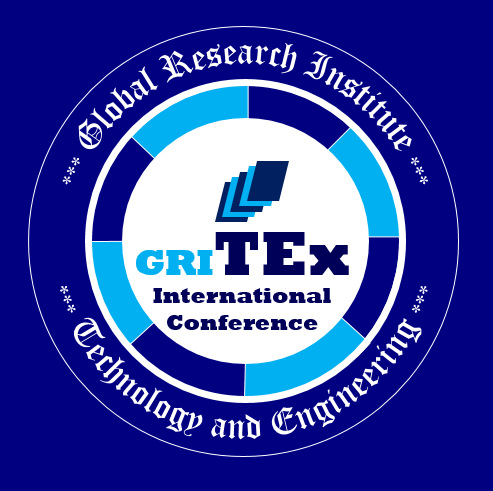
Global Research Institute of
Technology and Engineering
Home | About GRITEx | Research | Education | Publication | Contact Us

Global Research Institute of
Technology and Engineering
Home | About GRITEx | Research | Education | Publication | Contact Us

Designing Workforce Management Systems for Industry 4.0: Data-Centric and AI-Enabled Approaches. In the era of industry revolution 4.0, we are seeing a host of powerful Data-centric approaches, IoT technologies, Cloud-based services, AI algorithms, Machine learning models, Deep learning frameworks, Data Analytics, and Data Visualization aimed at supporting or replacing the human management capabilities in workforce management system (WMS) system. Therefore, human is eager to leverage the most multi-faceted Data-centric approaches, AI-enabled application and emerging technologies to develop, deploy and deliver next-generation workforce management systems.
The book brings insight into the workforce management system and offers Data-centric approaches and AI-enabled applications for implementing the strategies of workforce development and management. It includes current developments in the future directions and covers the concept of the HCM systems along with their sub-systems. It focuses on the mechanisms of proposing solutions along with architectural concepts, design principles, smart solutions, and intelligent prediction with visualization simulation for the modern workforce management system by focusing mainly on six areas of infrastructure that are based on entities: Workforce AI-enabled Applications, Workforce Data Analytics, Human Capital Management, HR Data Visualization, Workforce Predictive Models in Industry 4.0, and including Cloud Computing for the development of the Workforce Management System.
We really believe that the models and applications of the “Designing Workforce Management Systems for Industry 4.0: Data-Centric and AI-Enabled Approaches.” book will favor the people's aspirations.
This book targets a mixed audience of students, engineers, researchers, academics and professionals from different communities to share and contribute new ideas, methodologies, technologies, approaches, models, frameworks, theories and practices to resolve the challenging issues associated with the leveraging of combating emerging technologies and smart solutions with Data-centric AI solutions for developing a Workforce Management System in Industry 4.0.
You are invited to contribute chapters and papers and the scope of the book includes but is not limited to the following topics:
Designing Workforce Management Systems for Industry 4.0: Data-Centric and AI-Enabled Approaches. book proceedings will be published by CRC Press, Taylor & Francis Group, Florida, USA
No Publication Charge
Each Contributor shall receive an ACADEMIC CERTIFICATE as the copyright of the Contribution and 01 complimentary eBook copy of the Work in which the Contribution appears.
All papers must be original and not simultaneously submitted to another journal or conference. The following paper categories are welcome:
All Taylor & Francis (T & F) publications have a direct feed (indexed) to WoS and Scopus and newly submitted contents are submitted monthly.
At present, WoS contains 10,000+ books and T & F in the top ten contributing publishers.
All questions about submissions should be emailed to
